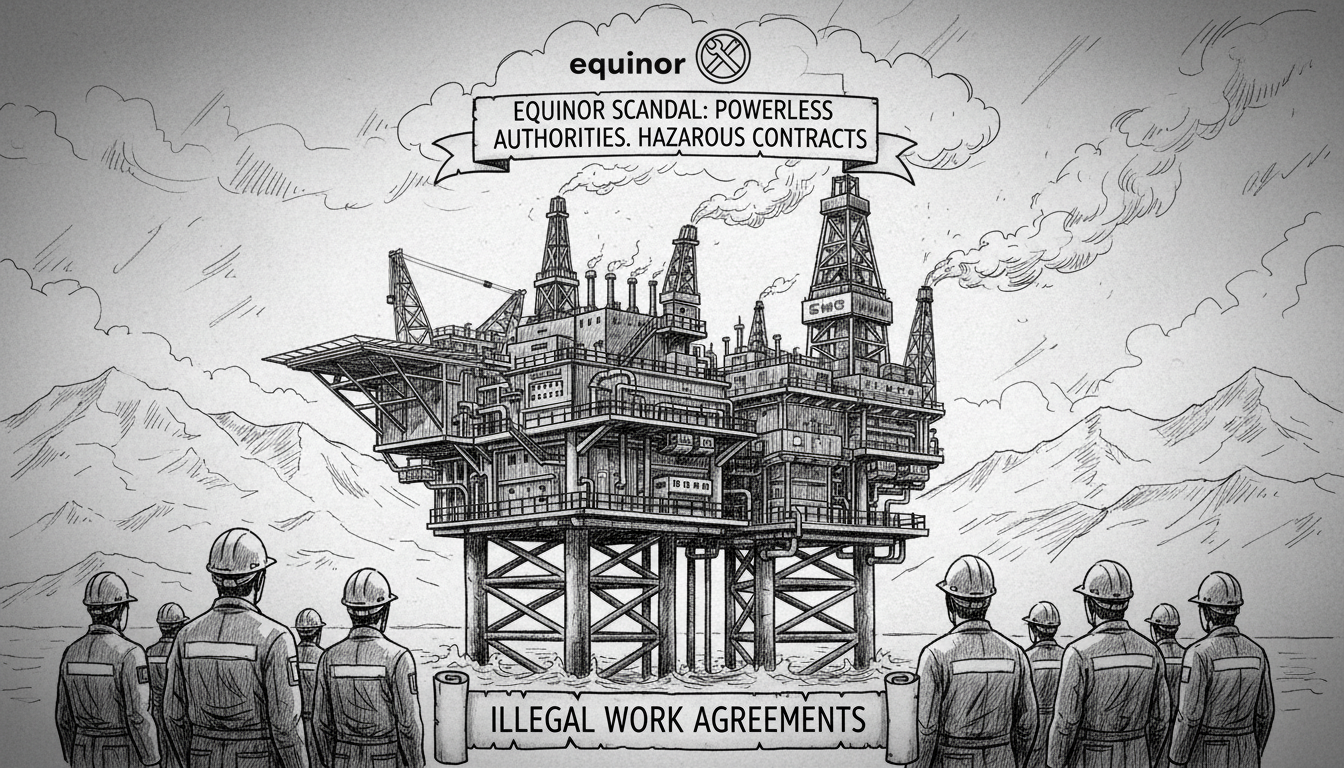Foreign contract workers at Equinor's oil and gas facilities have been operating under illegal employment contracts, according to legal experts. The investigation revealed systematic violations of Norwegian labor laws that went undetected for years. Multiple staffing agencies dispute these findings, but evidence suggests the illegalities were easily detectable.
Legal professionals examining the contracts expressed surprise at how obvious the violations appeared. One attorney noted the problematic clauses required no complex legal analysis to identify. The contracts showed workers receiving five-week employment terms repeatedly, allowing agencies to terminate them immediately after each assignment period ended.
Norwegian law requires temporary workers to have permanent base employment with their staffing agency. This provides income security between projects. The discovered contracts violated this fundamental principle, leaving workers financially vulnerable during gaps between assignments.
Workers with supposed permanent contracts reported receiving no pay during inactive periods. Pay slips reviewed confirmed these payment interruptions. Many contracts listed workers at 20-50% employment levels while actual work hours far exceeded these percentages.
Norwegian authorities face criticism for their limited oversight capabilities. The Petroleum Safety Authority Norway stated illegal contracts fall outside their jurisdiction. The Norwegian Labour Inspection Authority confirmed they lack authority to review individual employment agreements for legality.
This regulatory gap means workers must pursue legal action independently if they believe their contracts violate law. Union assistance becomes crucial in these situations, placing burden on individual employees to challenge powerful corporations.
Equinor defended their practices by citing privacy concerns regarding contractor agreements. Legal experts challenged this justification, noting contract terms and salary conditions don't constitute personal data that requires protection. The energy company has now initiated an extraordinary review process.
Safety concerns represent the most alarming aspect of these findings. Offshore oil and gas work involves significant hazards requiring strict safety protocols. Workers on precarious contracts may hesitate reporting unsafe conditions or refusing dangerous work assignments.
Norway's Oil and Energy Minister expressed dissatisfaction that media uncovered these violations rather than regulatory bodies. He acknowledged the need for improved oversight mechanisms and pledged discussions with the Labour Minister about strengthening inspection capabilities.
The situation highlights broader issues in temporary employment practices within Norway's offshore industry. Contract workers constitute a substantial portion of the workforce maintaining the country's crucial energy infrastructure. Their employment conditions directly impact both worker welfare and operational safety.
This case reveals concerning gaps in Norway's much-vaunted worker protection systems. The country prides itself on fair labor practices, yet these violations persisted undetected despite involving major corporations and government-regulated facilities. The outcome of Equinor's internal review and potential regulatory changes will demonstrate whether systemic improvements follow this exposure.

